New Scientist covers the latest developments in science and technology that will impact your world. New Scientist employs and commissions the best writers in their fields from all over the world. Our editorial team provide cutting-edge news, award-winning features and reports, written in concise and clear language that puts discoveries and advances in the context of everyday life today and in the future.
Elsewhere on New Scientist
The fossil fuel-free state • South Australia’s push to net zero offers lessons – and hope – for the world
New Scientist
Glittering life of the Panama Canal
Farming linked to disease spike • An analysis of DNA from human remains shows that more diseases jumped to people after we started domesticating other animals, finds Michael Le Page
Why birds’ eyes can be blue, green, pink or orange
Odd cosmic explosion may break our understanding of space
Field notes Puerto Nariño, Colombia • Amazon’s pink dolphins are feeling the heat Months of extreme temperatures and low rainfall are taking a toll on wildlife and people in the rainforest, finds Luke Taylor
Mysterious rotation trick makes magnets float in the air
The moon is 40 million years older than we thought
Farming may expand to wilderness • As the world warms, vast wild areas in the north will become more suitable for farming
Fermenting vegan cheese could make it more like dairy
Brain-inspired chip could be the fastest at running AI
Air filters cut covid-19 sick days in schools
We forget details when our brain picks the wrong thing to remember
Sperm caught breaking Newton’s third law of motion
Hundreds of chatbots could show us how to make social media less toxic
Emergence of cicada generation led to a caterpillar boom
Sleepers respond to words they hear • People seem to be able to reply to speech with pre-arranged facial expressions while napping
Upwards lightning shoots out X-rays as it rises to the clouds
Particle accelerator is so small it could fit inside a pen tip
The bird flu sweeping the world evolved in Europe and Africa
Blast of radio waves is 8 billion years old
Hitting snooze won’t make you more tired
Warm seas blamed for disappearance of snow crabs
Really brief
Building our future • Let’s lose old stereotypes about engineering, because attracting new talent is crucial to meeting net-zero goals, says Dr Hayaatun Sillem
This changes everything • Don’t click on the war Online celebrity culture, such as the saga of movie stars Will Smith and Jada Pinkett Smith, is the ultimate counterprogramming in a time of conflict, says Annalee Newitz
On the run
The ascent of woman • Was culture made by mothers? What is menopause? Did sexism help women? Alexandra Thompson reads an account of women as evolutionary agents
From black to white holes • Carlo Rovelli’s latest book takes us on a journey into the centre of a black hole – and back out again, discovers Abigail Beall
New Scientist recommends
The TV column • Cooking up a storm Lessons in Chemistry is the story of a woman scientist frustrated by her times who becomes the host of a TV cooking show. The series takes a while to find its stride, but patience will be rewarded, says Bethan Ackerley
Your letters
In search of quantum gravity • The question of what space-time is made of, and whether it is quantum or classical, is among the biggest in physics. These experiments could finally crack it, says Lyndie Chiou
Can we conjure space-time from scratch?
Electric dreams • South Australia is a solar and wind energy champion and now plans a truly fossil fuel-free grid. How did it make such a remarkable...
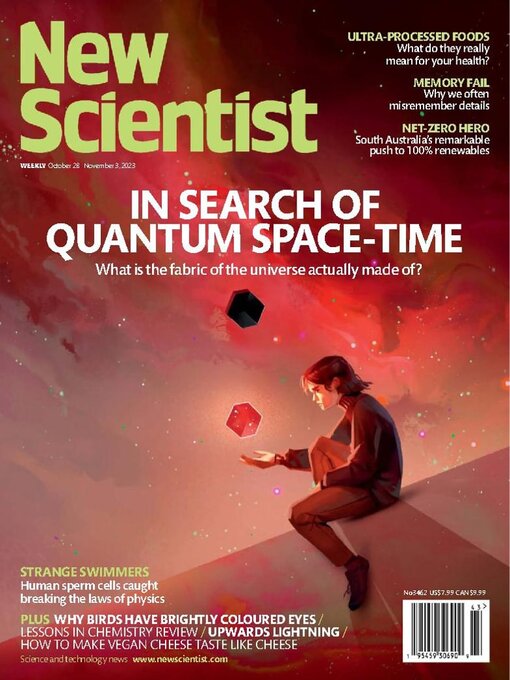
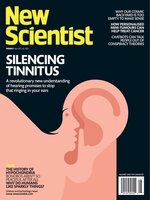 Apr 20 2024
Apr 20 2024
 Apr 13 2024
Apr 13 2024
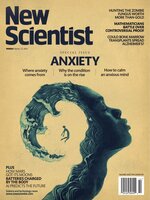 Apr 06 2024
Apr 06 2024
 Mar 30 2024
Mar 30 2024
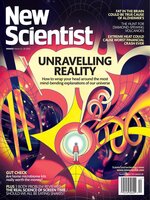 Mar 23 2024
Mar 23 2024
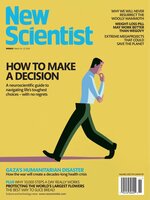 Mar 16 2024
Mar 16 2024
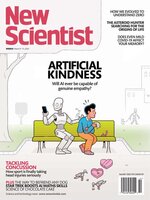 Mar 09 2024
Mar 09 2024
 Mar 02 2024
Mar 02 2024
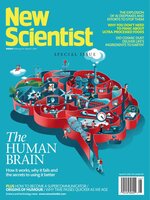 Feb 24 2024
Feb 24 2024
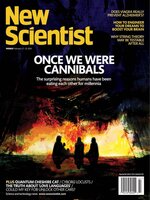 Feb 17 2024
Feb 17 2024
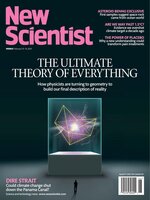 10 Feburary 2024
10 Feburary 2024
 Feb 03 2024
Feb 03 2024
 Jan 27 2024
Jan 27 2024
 Jan 20 2024
Jan 20 2024
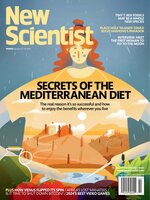 Jan 13 2024
Jan 13 2024
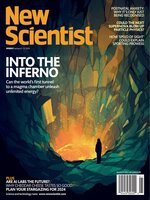 Jan 06 2024
Jan 06 2024
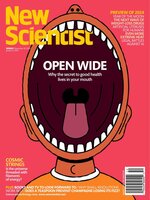 Dec 30 2023
Dec 30 2023
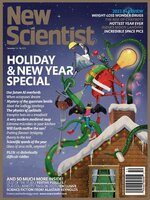 Dec 16 2023
Dec 16 2023
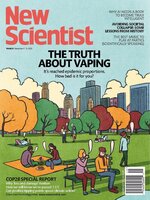 Dec 09 2023
Dec 09 2023
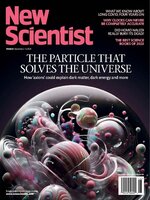 Dec 02 2023
Dec 02 2023
 Nov 25 2023
Nov 25 2023
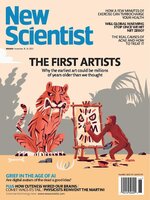 Nov 18 2023
Nov 18 2023
 Nov 11 2023
Nov 11 2023
 Nov 04 2023
Nov 04 2023
